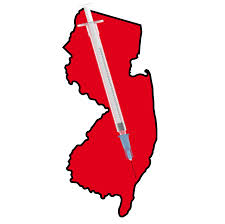People do not opt out of vaccination lightly. They do so for reasons that define who they are.
NEW Jersey’s lawmakers want to make it harder for parents to opt out of vaccines. This is a very bad idea. It erodes our rights and promotes increased government intrusion into our private religious, parental and medical affairs. The bill is discriminatory, dangerous and expensive. And it won’t work.
Government shouldn’t judge whether our religious beliefs are sincere. Government shouldn’t prohibit religious beliefs from addressing issues of safety, cleanliness or bodily integrity. Government shouldn’t compel citizens to choose a religion and stick to it forever. And government shouldn’t require someone else to approve our beliefs in order to make them legitimate.
And yet, these things are precisely what Trenton wants to do.
In order to demonstrate religious sincerity for the purpose of obtaining a religious exemption, S-1147 proposes that citizens present a sworn and notarized statement that their beliefs are bona fide and sincere; continuously held; specifically related to enumerated religious tenets; and unrelated to any political, sociological, philosophical or moral views or to issues of vaccine safety or efficacy, and that they be signed off by a licensed physician.
Implications of this bill boggle the mind. Who has the authority to define what constitutes religious belief, let alone sincerity? What questions are asked to determine whether I’ve been religious long enough or recently changed my beliefs for a good enough reason? Is there an appeals process? If the state can override my religious beliefs to refuse vaccines containing porcine or bovine gelatin, would they not also deny citizens the right to keep kosher or avoid pork? What about a religious belief that precludes being injected with human diploid lung fibroblasts from terminated pregnancies? Aren’t religious practices often entwined with beliefs about morality, conscience, lifestyle and philosophy? Why is the state asking physicians to sign off on non-medical exemptions? Why must personal medical, religious and parental matters be made public?

